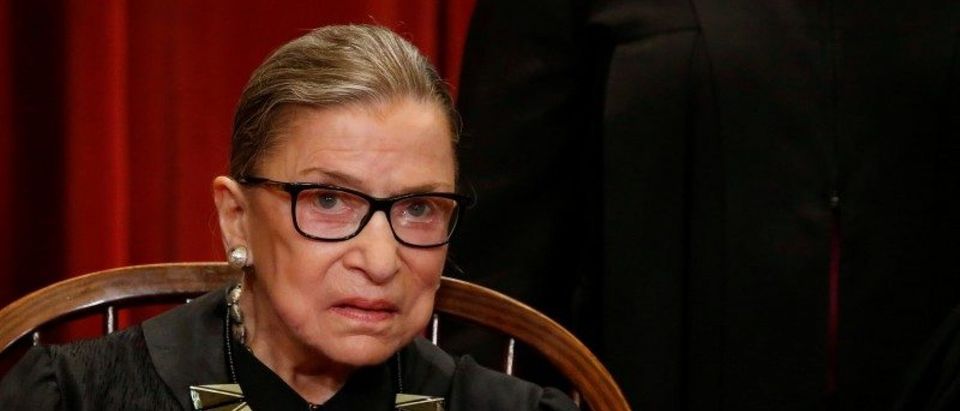SCOTUS (Supreme Court of the United States) delivered a kiloton-heavy blow for freedom of speech when it unanimously decided (8-0) that the government should not be in the business of deciding what is disrespectful, contemptuous or embarrassing in a name. Snowflakes are devastated by SCOTUS’ enlightenment.
The case in point was brought by a West Coast Asian American band that wanted to register its name “The Slants” with the U.S. Patent and Trademark Office. The Office refused to register the name because it was or might be “offensive” to the Asian community. The legal excuse was a 1946 law that prohibits trademarking any name that could be “offensive” or “demeaning” to an aggrieved group.
The Office had no trouble in the past of approving names like that of the Washington NFL team, the “Redskins” in 1967, 1974, 1978 and 1990. Enter President Barack Obama and his “snowflake” personal outlook. In 2014, the Obama-directed Office canceled its “Redskins” trademarks because a minority group headquartered in upstate New York (Oneida) financed with casino profits objected to the D.C. team’s name, the Redskins.
Redskin owner Daniel Snyder went to court in Virginia where a judge sided with the Oneida Indian tribe (excuse me, Native Americans). The judge ruled against Snyder. He appealed. The appeals court set the case aside while the SLANT case was being handled by SCOTUS. Uber-rich Snyder has to be delighted that a San Diego born and educated Chinese American – Simon “Young” Tam – musician refused to bow to an omniscient federal government.
Tam told the New York Times that, “I basically walked away from being a full-time musician to take second and third jobs to pay for the legal fees.”
This is but one victory. “Snowflakes” and some Amerindians – have forced universities to change their nicknames – such as North Dakota University and its “Fighting Sioux.” There the politically-correct National Collegiate Athletic Association (NCAA) dictated a name change. The University and some alumni fought the issue but eventually lost. The NCAA threatened the university by withdrawing its membership thus denying its ability to compete nationally.
Closer to home, my alma mater, San Diego State University was challenged on its nickname/namesake that it has been known by for seven decades – the San Diego State AZTECS. The politically correct yet politically ignorant student government voted to cancel the name. A student referendum produced a 24 to one (96 percent) student vote that supported and retained the Aztec name. Recently a part-time State lecturer has resurrected the racism charge he alleges is the foundation of the name but he appeals to a tiny number of people who probably can’t find Tenochtitlan – the Aztec Empire’s capitol – on a map.
The San Diego State student electorate used the democratic method to settle the issue of whether or not a name, nickname or namesake that some consider objectionable can be fought off. North Dakota University succumbed to a private association’s threats and dropped the name “Fighting Sioux” despite the fact that half of the state’s Sioux Indian tribes supported the name.
From this kind of background comes the “Matal v. Tam” SCOTUS case. This result should have a heavy-duty effect on the NFL Redskin’s case on the cancellation of its trademark by the very same office that denied Mr. Tam’s trademark application.
Justice Samuel Alito Jr. wrote this in the unanimous decision: “We don’t want the government deciding what brands and slogans are too offensive to be trademarks any more than we want the government deciding which shows are too disrespectful to be televised or which political treatises are too radical to be published.” Substitute “private organizations” for “government” in that statement to see how important this decision is.
Take note NBC, Megyn Kelly and InfoWars’ provocateur Alex Jones.
Joining Justice Alito was Justice Anthony Kennedy who wrote: “To permit viewpoint discrimination in this context is to permit government censorship.” Substitute “private organizations” for “government” in that statement to see how important this decision is.
As for me, I don’t care what anyone might say or what government officials say, “I’m an AZTEC for life.”
Contreras is the Author of THE ARMENIAN LOBBY & AMERICAN FOREIGN POLICY (Berkeley Press 2017) and THE MEXICAN BORDER: IMMIGRATION, WAR AND A TRILLION DOLLARS IN TRADE (Floricanto Press 2016), he formerly wrote for the New American News Service of the New York Times Syndicate


